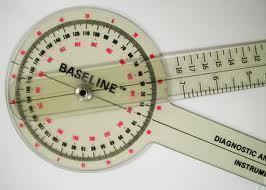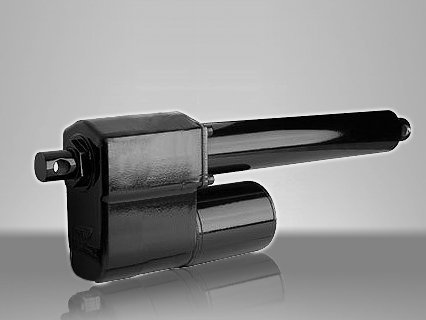A goniometer is a device that either measures an angle or moves an object along a fixed point to a specific angular position. Goniometers have many uses and can be found in a number of industries. They measure range of motion, determine direction, and measure an object’s dimensions. Goniometers are relatively simple in design and have been used since 1780.
How a Goniometer Works
A goniometer consists of two limbs, usually made of plastic or wood, that are connected by a joint and are usually attached to a circular piece of the same material that is labeled with multiple angular measurements. As one limb is moved towards or away from the other limb, it is dragged along the circular piece and displays a measurement. Goniometers are made from a number of different materials and range dramatically in size, depending on the nature of the application.
Applications
Medical professionals use goniometers to measure the range of motion found in a patient’s appendage before and after treatment in order to determine if the treatment is actually improving the patient’s condition. Goniometers are used in art in order for an artist to draw a straight line or perfectly round circle. Additionally, goniometers measure the angle of each face in a crystalline structure and have led to more knowledge about a crystal’s atomic structure.
Advantages
Goniometers are portable and are simple enough to be mass produced in a short amount of time. They are inexpensive and have many different purposes, ranging from those found in the medical industry to applications in physical science. Goniometers have been used for over two hundred years and have contributed to the advancement of many different fields.
Disadvantages
Goniometers must be carefully labeled with respect to the angles that they measure. Goniometers are limited by the materials that they can be constructed from and must be used in conjunction with a surface medium in order to provide any significant results.




Follow Us!